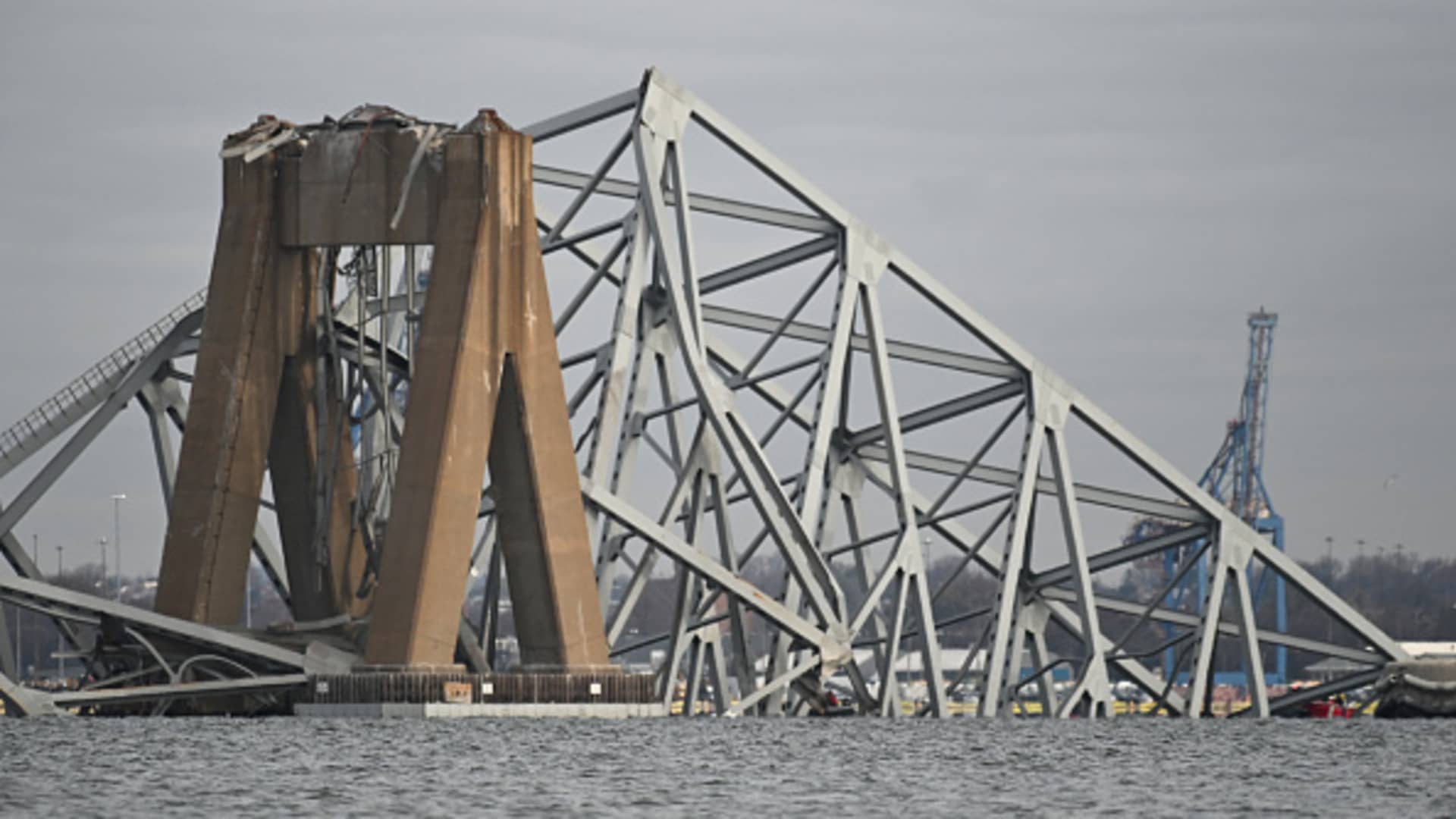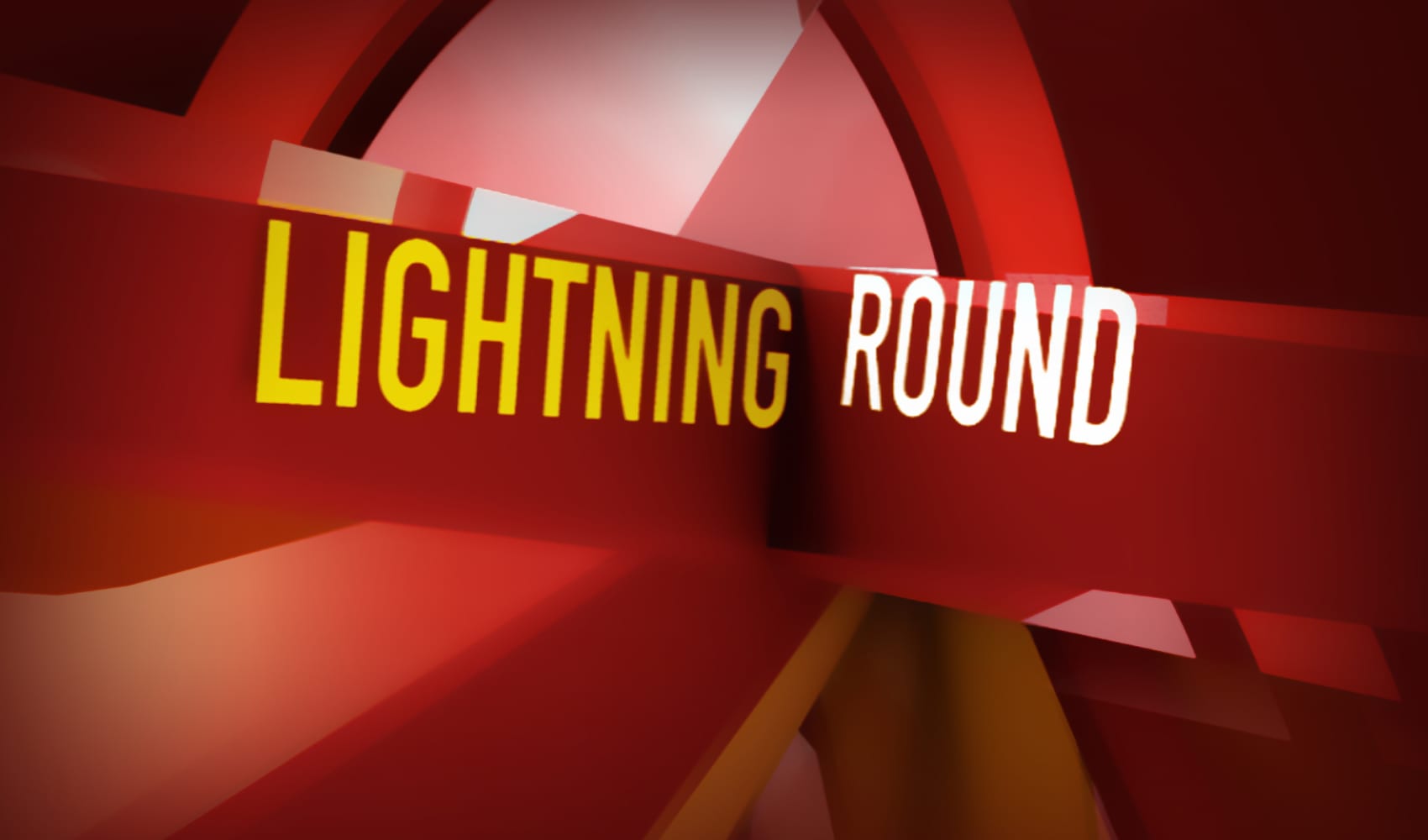
- Baltimore's Francis Scott Key Bridge collapsed early Tuesday morning.
- Economists say the bridge's collapse will create temporary disruptions for companies that rely on the Port of Baltimore for their imports or exports.
- Baltimore's port is the 11th largest in the U.S. and the primary port for the auto industry, which could see U.S. car lot inventory shortages if supply chains get snarled.
The collapse of Baltimore's Francis Scott Key Bridge was a maritime disaster but not an economic crisis, experts said Tuesday.
"It's a real human tragedy what's happened, because there are people in the water," RSM Chief Economist Joseph Brusuelas said. "In terms of economics, it will cause barely a ripple in the national macro economy."
The Singapore-flagged DALI container ship collided with a pillar of the bridge in the early hours Tuesday, causing it to immediately collapse.
Get Tri-state area news delivered to your inbox.> Sign up for NBC New York's News Headlines newsletter.
An all-hands rescue effort was underway late Tuesday. President Joe Biden said he would visit Baltimore as soon as he could.
National economy
The collapse of the bridge shut down the Port of Baltimore until further notice, effectively halting shipping operations at the nation's eleventh largest port and one that serves as the auto industry's top destination for exports.
Money Report
In 2023, the Port of Baltimore handled over 847,000 cars and light trucks, more than any other port in the United States.
"It flies under the radar for most Americans, given its location," said Brusuelas. "It's not sexy, like the Port of LA, but it plays a critical role in the American supply chain."
Auto companies like BMW and Volkswagen will likely be hit hardest at first, he added, given their heavy reliance on the Baltimore port. Consumers looking to buy new vehicles might see temporary shortages, meaning they could have to wait a few extra weeks to purchase their desired model.
Retailers like Under Armour, Home Depot, IKEA and shipper FedEx could also feel near-term impacts, Brusuelas said. Home Depot's distribution centers in the Baltimore area are "open and operating," a company spokesperson told CNBC Tuesday.
"There's going to be a lot of adjusting to do," Moody's Chief Economist Mark Zandi told CNBC. "But I don't think it's going to show up in the macroeconomic data."
Regional economy
For the city of Baltimore, though, the economic impacts of the bridge collapse will hit harder and last longer.
The Baltimore port directly employs over 15,000 workers and indirectly supports nearly 140,000 jobs via other port activities, according to Maryland Gov. Wes Moore.
Baltimore port employees could be temporarily furloughed, or see disruption in their work hours amid the shutdown.
In the meantime, without the bridge, employees will likely face longer commute times in an already heavily congested traffic zone.
Spread over an entire working region, this "weighs on productivity," Zandi added.

Supply chain capacity
After years of dealing with pandemic-era supply chain snarls, ports across the country have increased their efficiency and capacity in order to clear massive backlogs, according to Brusuelas. That extra shipping capacity provides a safety net in the event of a logistical emergency.
"The bridge collapse is the latest challenge for Northeast U.S. supply chains," said S&P Global Head of Supply Chain Research Chris Rogers. Others, he said, include "access to the Red Sea and Panama Canal, as well as the prospect of port strikes later in mid-2024."
But overall, any economic disruption from Tuesday's bridge collapse will likely cycle through the economy in the next few weeks, and be unnoticeable by late April.
"It's not an economic event," said Zandi. "It's just going to take more patience. It's just going to take longer to get from one place to the next."
Still, this incident highlights the fragility of America's transportation infrastructure.
"There's no cushion left so if something else were to happen, we've got a problem," Zandi said.
Rebuilding the bridge
Once the Baltimore port can reopen, state and federal officials will then face another massive challenge: rebuilding the Key Bridge.
"I expect the administration, the state of Maryland to really kick into high gear," Zandi said. "I think we are going to get a very aggressive policy response."
Biden on Tuesday said he expects the federal government to pay for "the entire cost" of reconstruction with congressional authorization.
Paying for the bridge reconstruction will likely require a myriad of funding sources, including municipal bonds and money from the $1 trillion Bipartisan Infrastructure Law.
"This is going to take some time," Biden said Tuesday. "The people of Baltimore can count on us, though, to stick with them until the port is reopened and the bridge is rebuilt."
— CNBC's Lori Ann LaRocco contributed to this report.






